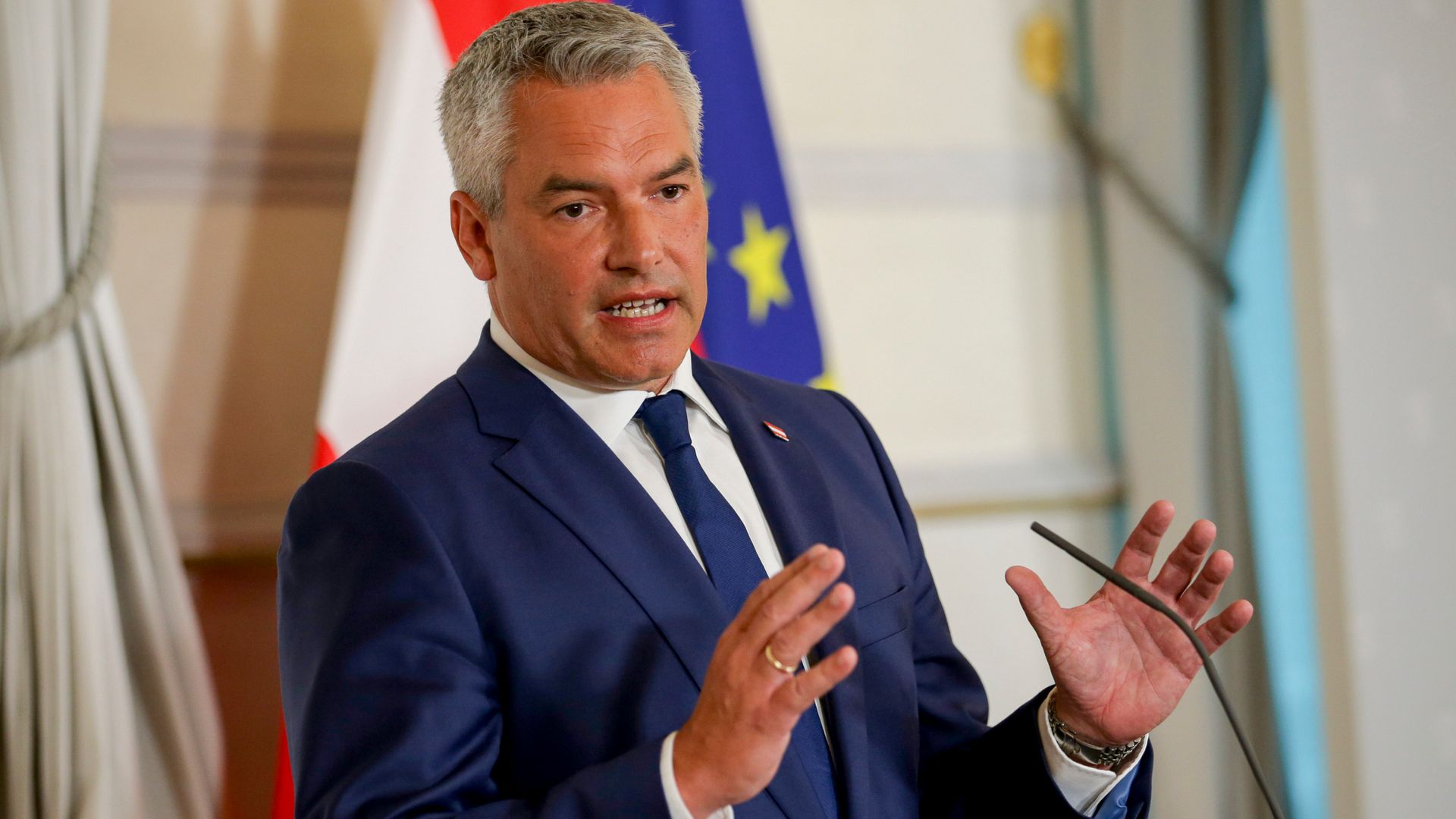Austrian Chancellor Karl Nehammer has announced he will resign in the coming days after talks on forming a new government failed for a second time.
His declaration on Saturday came after the People’s Party and the Social Democratic Party continued coalition talks, a day after the liberal NEOS party’s surprise withdrawal from discussions.
“Unfortunately I have to tell you today that the negotiations have ended and will not be continued by the People’s Party,” Mr Nehammer from the conservative People’s Party said.
He claimed “destructive forces” in the Social Democratic Party had “gained the upper hand” and that the People’s Party would not sign on to a programme that is reportedly against economic competitiveness.
Social Democratic Party leader Andreas Babler said he regretted the decision by the People’s Party to end the negotiations, adding: “This is not a good decision for our country.”
Mr Babler said that one of the main stumbling blocks had to do with how to repair the “record deficit” left by the previous government.
He added: “I have offered to Karl Nehammer and the People’s Party to continue negotiating and called on them not to get up.”
Far-right party wins Austrian general election – but may struggle to form government
Austria’s far-right Freedom Party eyes first-time election win with narrow lead in polls
Thousands forced to evacuate flooding in Italy – as King Charles expresses his ‘profound shock’
Read more from Sky News:
Jimmy Carter’s six-day state funeral starts
Musk could act as middleman between China and Trump
Follow our channel and never miss an update.
The next government in Austria faces the challenge of having to save between €18bn to €24bn, according to the EU Commission.
Austria has also been in a recession for the past two years, is experiencing rising unemployment and its budget deficit is currently at 3.7% of Gross Domestic Product – above the EU’s limit of 3%.
Be the first to get Breaking News
Install the Sky News app for free
The talks have dragged on since Austria’s president, Alexander Van der Bellen, tasked the conservative chancellor in October with putting together a new government.
The request came after all other parties refused to work with the leader of the far-right Freedom Party, which in September won a national election for the first time with 29.2% of the vote.





